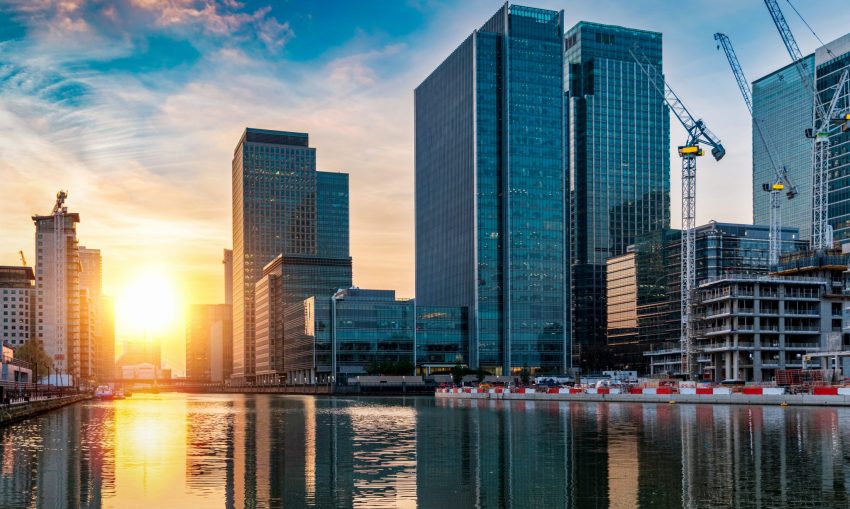Provocative title isn’t it? Much as I’d like to take the credit, I must admit it was given to me. My role is to vigorously challenge it with my avocado-munching, selfie-obsessed Millennial perspective. Having worked for investment houses and a few edgy fintechs, I reckon I’m up to the job. What strikes me about the title is that lurking within are two bold assumptions. Firstly, that Millennials are not using wealth managers, and secondly that uninterested customers are somehow responsible for the demise of a product or service. I would challenge both fervently. Millennials are using wealth managers, of course we are, just perhaps not the kind you’re thinking of. And, as all managers should be aware, products have a lifecycle. If they cannot evolve with demand, they fall behind. It’s not the fault of the customers … and they say Millennials don’t take enough self-responsibility.
Millennials, a most hated generation
So, who are we? Where did these man-buns and soya lattes come from? Following Gallup’s definition, Millennials are those born between 1980 and 1996. Today, we’re between the ages of 40 and 24. Some are more digitally native than others, however we all use technology with relative fluency, often to the bafflement of our Gen X and Baby Boomer parents. We cringed when parents joked, “Am I bovvered?”, and rolled our eyes when they needed us to then install their parental control software.
As adults, we’re often branded as spoiled, disillusioned nobodies. Not really helping was the infamous 2013 edition of Time Magazine entitled, “THE ME ME ME GENERATION, Millennials are lazy, entitled narcissists who still live with their parents”. Thanks for that. We’ve been slammed as “Generation Rent”, “NINJAs” (no income, no jobs or assets) and I’m sure you’ve heard worse. The sad thing is much of it’s true – especially about moving out. We became adults when university fees escalated beyond belief. Medical students in the US now graduate with an average debt of $196,520[1], increasing by 63% since 2006[2] and in the UK, that figure is around £82,000[3] when tuition was free in 1998. Frustratingly, we earn less than our parents did[4], with record unemployment levels[5] while spiralling property costs have made home ownership unattainable. According to Resolution Foundation[6], before we turn 30 years old, we’ll have spent £44,000 more on rent than our parents did, and only 42% of UK Millennials own their home. Student loans, stagnant salaries and higher living costs mean we’re forced to delay life milestones[7] such as moving out, getting married or having children. The impact of the 2008 financial crisis made us a sceptical generation, with unrivalled distrust of the governments, banks and institutions[8]. We shoulder our burden of debt like Atlas, and it feels impossible to shift. Many of us escape to our alternative realities online, building our lives in social media. Well, wouldn’t you?
Wealth Management nearly destroyed Millennials
Flipping the title on its head, Wealth Management is not the victim here. Our mistrust of banks is not unfounded. One Deloitte report[9] found that 60% of Millennials with an income of over £75,000 would trust a robo-advisor more than a financial advisor. Ouch. For myself, it’s very understandable, because I’m one of them. Like almost every Millennial[10], The Great Recession shifted my view forever.
I remember 2008 well. Not so much the screaming headlines, nor general unrest, but the feeling of being made redundant for the first time. I was 17, and for nearly three years I’d loved working at a bookshop called Borders. My home, the Welsh Rhondda Valleys, slumped into a desperate depression and finding new work was more stressful than A-Levels. Eventually I secured three different part-time jobs, far apart and with poor wages. Very few people had any real form of income. The crisis nearly ripped the heart from my home and community. More shocking still was the £16 billion of bankers’ bonuses paid out that year. Think on that. These incredibly wealthy culprits kept their jobs, their salaries, they even got eye-popping bonuses… For what? For devastating the livelihoods of billions? All paid for by us – by me, the people suffering and struggling at the bottom. For the first time, the mask slipped, and the world saw the ugliest side of bankers and Wealth Managers. That image has now been cemented and preserved with films such as The Wolf of Wall Street, Money Never Sleeps and The Big Short. We’re never going to forget it.
“I think [Millennials] have got a very significant psychological scar from this great recession,”
Morgan Stanley’s analyst Kimberly Greenberger[11]
The trauma of the 2008 crisis is still with us today. In the years that followed, debt levels soared, unemployment rocketed, even migration and fertility rates declined[12]. For most Millennials this was our debut into the workforce. We’ve picked up the bill left by irresponsible bankers, and we know it. So, it’s a little rich to ask if Millennials are destroying Wealth Management. Viewing Wealth Management as part of a deeply flawed global financial system, they destroyed us with its greed and outlandish lack of responsibility. By positioning profit before people, the industry turned their back on us. In turn, we Millennials – the now largest generation in history[13] – turned our backs and took our money elsewhere. And it’s not a small amount either, Millennials make up the largest portion of the workforce today, worth more than $1 trillion in consumer spending[14]. Today 57% of Millennials feel that financial advisors are only motivated to make money for themselves[15].
Planet-destroying investments
Astonishingly, it’s still going on. The investment industry is not done yet on its insatiable hunt for profit without consequences. For Millennials and Gen Z, the only thing that preys on our minds more than our never-ending debt, is our soon-ending planet[16][17]. It worries us nearly twice as much as our income. The Wall Street Journal[18] recently published this excerpt, which explains our attitude beautifully.
A few days ago, a smart 22-year-old asked me how to invest some savings from her first job. I advised her to open an individual retirement account. When she found out she couldn’t withdraw it without penalty until she turns 59 1/2, she shot back: “By then the planet will be a rotating cinder!”
We have a different view of the world, valuing health and happiness more far than material wealth[19]. Millennials were taught about the climate crisis in school as children, and we tend to take it more seriously. We don’t see the point in investing in a world which is going to destroy us. To us, that’s obvious. How can you count your money when you can’t breathe?
Sometimes my friends ask me how to get started investing. I’d like to share this recent WhatsApp with you, from a friend Pablo, who is an engineer:
“It needs to be sustainable… I wouldn’t be happy investing just for the sake of earning more money… I want to invest in cool sh*t”
Like 90% of high net worth Millennials[20], Pablo wants to invest in a way which matches his values. And like 87% of Millennials, he will consider a firm’s ESG track record, not just its latest “green” marketing.
Take moment to research the most planet-destroying companies, the real carbon-pumping big guns. A lot of them are on the S&P 500 or FTSE All Share, and traditional managers have been investing in them for decades. In fact, many of these carbon companies couldn’t have scaled up otherwise. Now consider that we have less than twelve years to reverse all the damage done before humanity faces untold suffering. Wealth managers should be at the forefront of this change, but they’re not. “Ethical” products are presented as an optional extra, which is crazy to us. So, tell me – why would Millennials hand over money? It would be like suicide. Wealth Management is destroying us, not the other way around.
Millennials deserve better
Wealth management is not the first enterprise that Millennials have been accused of “killing” or “destroying”, far from it. Also on the list is mayonnaise[21], Hooters[22], US chain food stores[23], shopping malls[24], MacDonald’s Big Mac[25], paper napkins[26], golf[27], Harley Davidsons[28], home ownership[29], canned tuna[30], divorce[31], bars of soap[32], diamonds[33], fabric softener[34], American cheese[35], doorbells[36], cable TV[37] etc… this list is exhausting, but not exhaustive. It seems whenever a product ends its lifecycle and becomes irrelevant, Millennials are to blame. I wonder how companies ever went down before we were around.
On the one hand it could be because we know what we want, and it’s not Big Macs, canned tuna… or traditional wealth managers. Call us entitled, but we try to care about the climate and need a service which suits us. On the other hand, it could be because most of us are stone cold broke[38], we’re left with astronomical debt and sky-high living costs following the 2008 financial crisis… and whose fault is that?
Wealth management needs to face up to its own weaknesses and stop blaming its victims.
Wealth management destroyed itself.
Digital wealth strategy
This article is produced as a collaboration with CREALOGIX (https://crealogix.com/uk/ ) – the leading software provider for digital wealth management systems of engagement. CREALOGIX is hosting a series of thought leadership live discussions, focusing on the competitive threats and opportunities for established wealth management firms in the digital era: https://info.crealogix.com/digital-strategy-wealth-management-april-july-2020
About the author
Hannah is a researcher and writer with more than six years studying finance and working in the world’s finest investment houses. In collaboration with CREALOGIX Hannah documents and communicates the differing expectations encountered by established financial services when adapting to serve new generations.
Read more articles from Hannah Duncan: https://www.hdinvestmentcontent.com/blog
[1] https://www.nerdwallet.com/blog/loans/student-loans/average-medical-school-debt/
[2] https://www.bls.gov/opub/ted/2016/college-tuition-and-fees-increase-63-percent-since-january-2006.htm
[3] http://www.pulsetoday.co.uk/news/gp-topics/education/medical-students-unlikely-to-repay-student-debts-during-working-life/20009752.article
[4] https://www.ft.com/content/e5246526-8c2c-11e7-a352-e46f43c5825d
[5] https://www.ft.com/content/e5246526-8c2c-11e7-a352-e46f43c5825d
[6] https://www.resolutionfoundation.org/press-releases/millennials-have-paid-44000-more-rent-than-the-baby-boomers-by-the-time-they-hit-30/
[7] https://old.nasdaq.com/article/5-life-milestones-millennials-are-delaying-because-of-student-debt-cm1255114
[8] https://www.ft.com/content/194cd1c8-6583-11e8-a39d-4df188287fff
[9] https://www2.deloitte.com/content/dam/Deloitte/lu/Documents/financial-services/lu-millennials-wealth-management-trends-challenges-new-clientele-0106205.pdf
[10] https://www.independent.co.uk/news/business/news/financial-crisis-millennials-hit-hardest-uk-workers-earnings-wages-gdp-ifs-a8533761.html
[11] https://www.businessinsider.com/millennials-are-killing-list-2017-8?r=US&IR=T
[12] https://www.weforum.org/agenda/2018/11/chart-of-the-week-bye-bye-baby-how-crises-affect-fertility-rates/
[13] http://luckyattitude.co.uk/gen-x-gen-y-gen-z-baby-boomers/
[14] https://www.gallup.com/workplace/257786/millennials-worry-environment-company.aspx
[15] https://www.accenture.com/_acnmedia/pdf-68/accenture-millennials-and-money-millennial-next-era-wealth-management.pdf
[16] https://www.gallup.com/workplace/257786/millennials-worry-environment-company.aspx
[17] https://www2.deloitte.com/global/en/pages/about-deloitte/articles/millennialsurvey.html
[18] https://www.wsj.com/articles/why-invest-a-22-year-olds-tough-questions-about-capitalism-11579882164
[19] https://www.slideshare.net/InklingIntelligence/inkling-uk-millennials-report
[20] Morgan Stanley Institute for Sustainable Investing: Sustainable Signals — The Individual Investor Perspective (2019)
[21] https://www.mentalfloss.com/article/554705/are-millennials-really-killing-mayo-investigation
[22] https://www.businessinsider.com/millennials-are-killing-list-2017-8?r=US&IR=T#cereal-6
[23] https://www.businessinsider.com/millennials-are-killing-list-2017-8?r=US&IR=T#casual-dining-chains-like-buffalo-wild-wings-and-applebees-1
[24]https://www.bloomberg.com/news/articles/2019-04-25/are-u-s-malls-dead-not-if-gen-z-keeps-shopping-the-way-they-do
[25] https://gothamist.com/food/promiscuous-millennials-are-killing-mcdonalds
[26] https://www.washingtonpost.com/gdpr-consent/?next_url=https%3a%2f%2fwww.washingtonpost.com%2flifestyle%2fhome%2fdo-you-use-paper-towels-as-napkins-at-the-dinner-table-you-are-not-alone%2f2016%2f03%2f25%2fd0d076b0-eb8c-11e5-b0fd-073d5930a7b7_story.html
[27] https://www.businessinsider.com/millennials-are-killing-list-2017-8?r=US&IR=T#motorcycles-8
[28] https://fortune.com/2019/01/27/millennials-harley-davidson-motorcycles/
[29] https://www.businessinsider.com/millennials-are-killing-list-2017-8?r=US&IR=T#bars-of-soap-11
[30] https://time.com/5469335/millennials-killing-canned-tuna/
[31] https://eu.usatoday.com/story/news/nation-now/2018/09/26/millennials-blame-lower-us-divorce-rate-study/1429494002/
[32] https://www.marketwatch.com/story/millennials-are-killing-bar-soap-2017-06-09
[33] https://luckyattitude.co.uk/why-millennials-are-killing-the-diamond-industry/
[34] https://www.wsj.com/articles/fabric-softener-sales-are-losing-their-bounce-1481889602?mg=prod/accounts-wsj
[35] https://www.bloomberg.com/news/articles/2018-10-10/american-cheese-is-no-longer-america-s-big-cheese
[36] https://doyouremember.com/98787/millennials-killing-doorbell-industry
[37] https://www.forbes.com/sites/markhughes/2015/03/21/the-millennial-trends-that-are-killing-cable/#13241d872293
[38] https://www.federalreserve.gov/econres/feds/files/2018080pap.pdf
Latest Articles

International Women’s Day 2021
International Women's Day 2021 To celebrate International Women's Day 2021, Barclays would like to invite you to join a series of panel discussions to be held virtually on: Monday, 8 March - 8:30am - 9:30 am EST / 1:30pm - 2:30pm GMT Thursday, 11 March - 4:00pm -...

Fintech investment builds on momentum and is set for record year
Fintech is continuing to enjoy popularity with investors who see it as a sector with excellent prospects for sustainable growth. The sector’s rise last year against a backdrop of great uncertainty has continued in 2021, with strong investment volumes gaining momentum....

Singapore Fintech Festival 2019
Singapore FinTech Festival 2019 summary of activities from the Fintech Power 50: Singapore FinTech Festival 2019 has proved another resounding success. Inaugural SFF x SWITCH sees over 60,000 participants from 140 countries; event to return on 9-13 November 2020....





